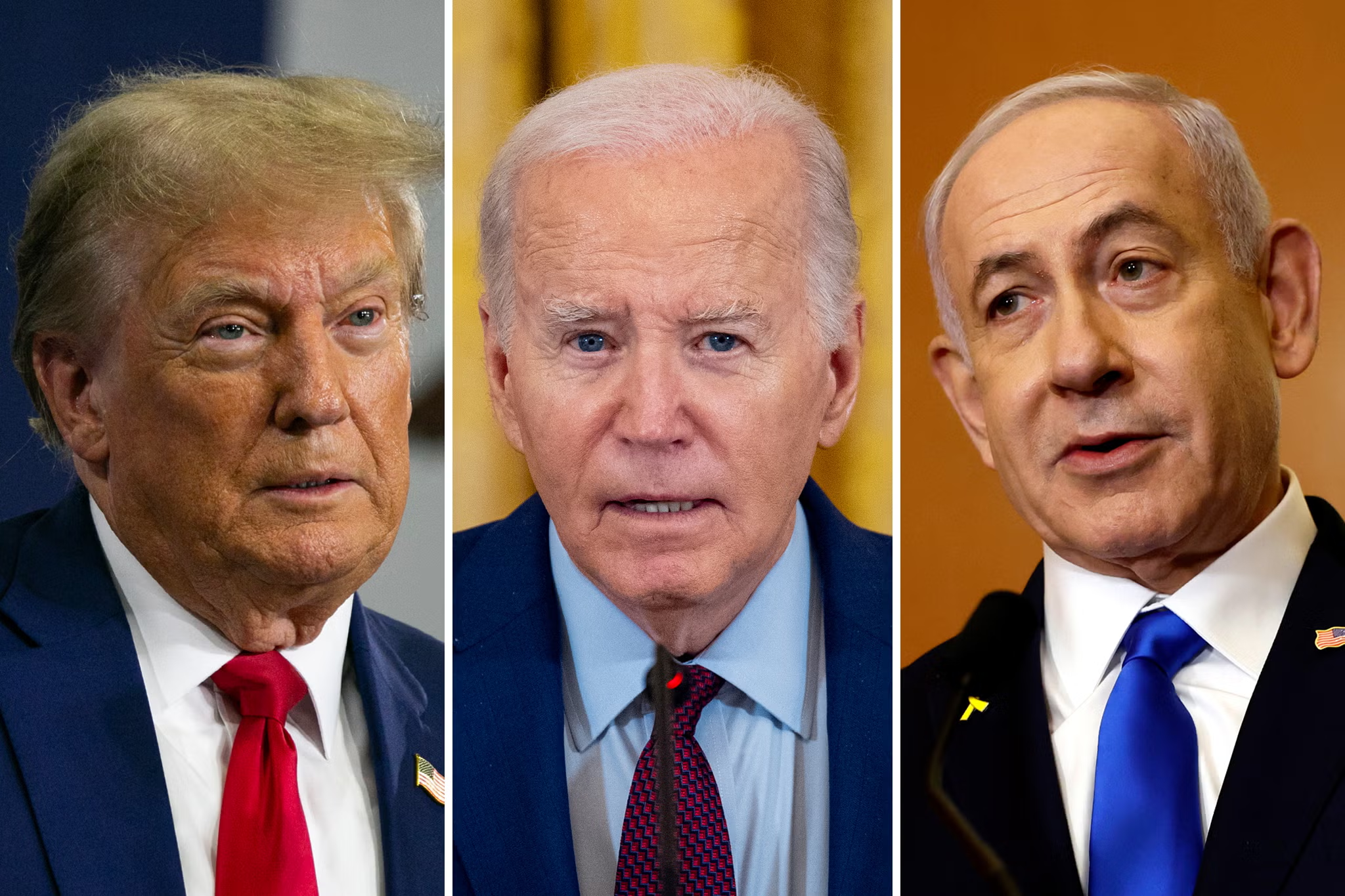
President Joe Biden doesn’t mince his words when it comes to talking about Trump and Netanyahu in private, according to the new book (Getty)
Prof. Sam Lehman-Wilzig: Speech or Substance? Biden, Trump & Bibi
Despite living in the age of internet memes, infographics, video clips, a flood of (mis)information, and so on, one form of political communication – the oldest of all – still holds remarkable sway: political speechifying. The past few months offer more proof of what’s been clear for decades.
In the past, FDR’s “fireside chats,” Hitler’s wild but mesmerizing demagoguery, and Reagan’s “aw shucks” homespun style – all were clear examples of what ancient Rome’s Cicero analyzed as the core of political persuasion. Nevertheless, one could reasonably expect that with the onset of the internet era with its viral communication abilities (textual and graphic), actual political oratory’s persuasive power would fade away. That has not happened; if anything, quite the opposite.
President Biden’s disastrous debate performance this past June was the first indication that the public continues to put great stock in how candidates verbally express themselves. A one-off stammer or hesitation is bad, but not decisive; several of these – especially when the individual is already suspected of having “lost it” (mentally) – is devastating. The reaction was not slow in arriving: heavy pressure to hand over the baton to his successor.
Then it was Donald Trump’s turn. Whereas Biden was a decent speaker in his younger days (already a U.S. Senator at the age of 30 – the youngest age allowed by the U.S. Constitution!), Trump has always been an oratorical oxymoron: mesmerizingly incomprehensible. With an extremely limited vocabulary but having a singular ability to use what words he possessed to tug at the heartstrings of the dispossessed, downtrodden, angry, alienated, and/or frustrated voter (the star-struck too), the “Donald” managed in 2016 to eke out an electoral victory (through the Electoral College, not the popular vote) against a relatively bland (oratorically speaking) Hillary Clinton. Trump’s continued semi-popularity (around half of America) proved an age-old adage: it’s not always what you say, but how you say it.
Then came his own debate Waterloo – against Kamala Harris, an experienced debater. It wasn’t so much what she said, but rather how she managed to manipulate Trump into even greater incomprehensibility (and clearly fantastical accusations). The verdict was widespread: there’s a limit to speechifying “genius” when the content veers too greatly from reality.
Which brings us to six-time Israeli Prime Minister Benjamin Netanyahu. Even his greatest political adversaries admit that when it comes to political oratory, he has few peers (if any) on the Israel scene – perhaps even on the world scene too. Fluent in Hebrew and English, he became an international “star” with his annual U.N. diatribes and occasional overseas TV interviews.
And yet, slowly but surely it has become apparent that the Emperor has no clothes. First, Bibi is not able to control his immediate family (his wife Sarah’s reported screaming fits; son Yair’s virulent online screeds), and indeed he seems to be scared of anyone in his government who is a potential successor. The list of Likud “princes” over the past three decades leaving the government, and many the party altogether is too long to bother repeating here. (The recent Gideon Saar “re-appointment” is merely evidence of Bibi’s present desperation.)
With the recent release of “The Bibi Files” documentary (in Canada, not in Israel), we have had a chance to see the tapes of his interrogations by the police several years ago; Netanyahu, the man with an impeccable memory, couldn’t remember the most basic events and facts of his recent life. Even his own son Yair accused him of being too “soft” to do what (Yair thought) was politically necessary against his “enemies.”
Even more interesting from an “oratorical” standpoint is the fact that over the past year’s war, his public speechifying in Israel has been reduced almost to the level of self-abnegation. Why? Because of his war “effort” – stretching out the war (if Khan Younis was so important, why send most if the IDF’s divisions home before the attack against Gaza’s southern front?); repeatedly placing obstacles in the way of any hostage return deal; for eleven months (until very recently), the lack of any forceful pushback against Hezbollah’s daily northern attacks – is the very antithesis of his usual oratory: “forceful.”
As opposed to Trump, Bibi understands that there is a limit to the cognitive dissonance between what he says and what he does. Yet, as Israel’s consistent poll results these past several months indicate, the Israeli public has finally woken up to the emptiness behind his brilliant rhetoric. At some point, there has to be a “there, there.”
Human nature being what it is, political oratory (speech in general) will continue to be a – perhaps “the” – central component of human communication, public and private. After all, homo sapiens have been writing for only 5000 years, using graphics (art) for about 20,000 years – but speaking for at least 70,000 years (https://theconversation.com/when-did-humans-first-start-to-speak-how-language-evolved-in-africa-194372). In short, speech is our “default” mode – personally and politically.
Unfortunately, it can also be the “fault” mode – so entertaining or hypnotizing that we don’t realize the “con game” it’s hiding. As in commerce, so too in politics: BUYER BEWARE!







